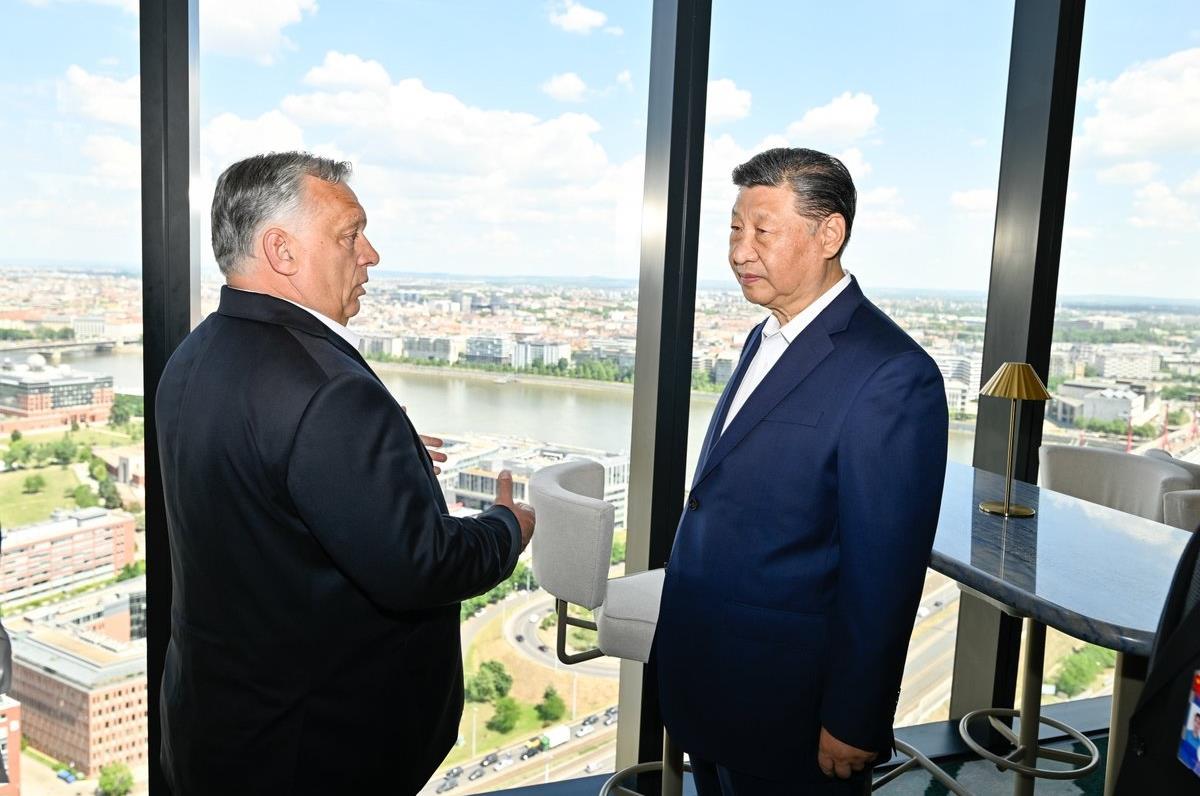PALM10: Japan's Extended Hand To The Pacific Islands
Date
5/14/2024 1:12:32 AM
(MENAFN- Asia Times) At the April US-Japan summit, President Joe Biden and Japanese Prime Minister Fumio Kishida agreed on the necessity of continued engagement with more Indo-Pacific countries, specifically mentioning the Pacific Island countries. Thus, ongoing dialogue between Japan and PICs could not be more timely as Japan prepares to host the triennial PALM10 summit this July 16-18.
Representatives from all 14 Pacific Island nations will attend, alongside Australia and New Caledonia. This year's summit will also be the first in-person dialogue since PALM9 took place online in 2021 due to Covid-19.
Known formally as the Pacific Islands Leaders Meeting (PALM), the triennial forum is a first-of-its-kind channel for Japan and each PIC to exchange candid views on high-priority issues. Since its beginning in 1997, PALM has become Japan's leading forum for strengthening economic and diplomatic ties with the Pacific Islands.
There is ample opportunity for Japan to engage its PALM counterparts and play a part in integrating the PICs in setting the mutually aligned goals of peace and stability in the Indo-Pacific. Japan's diplomatic relationship with the PICs started in the late 20th century. The Japanese had occupied the Pacific Islands during World War II and raw materials trading had continued.
Their relations have expanded to be inclusive of non-traditional security concerns including climate change-related projects and Japan's foreign aid, formally termed Official Development Assistance (ODA). Amid China's rising influence, then-Prime Minister Shinzo Abe's administration began exercising closer coordination with the Pacific Islands region under the 2016 Free and Open Indo-Pacific framework.
More recently, Japan was a founding member of the Partners of the Blue Pacific initiative in 2022, also including Australia, New Zealand, the United Kingdom, and the United States.
The islands may be small, but their surrounding ocean is vast-constituting nearly one-fifth of the earth's surface. From a strategic standpoint, it contains routes for maritime channels and important sea lines of communication (SLOC), the center of maritime enforcement activities.
From trade to bilateral/multilateral diplomacy Geographically, the Pacific Islands are dispersed and isolated.
Trade diplomacy remains the focal point of Japan's bilateral relations with the PICs. Concerning natural resources, tree log exports from Papua New Guinea, the Solomon Islands and New Zealand alone
account
for approximately 20% of Japan's total import volume of tree logs.
Latest stories

Kharkov fight aims to disintegrate Ukraine's army

Hungary is helping Europe kiss decoupling goodbye

Unleashed bank deposits misused in Chinese economy The Pacific is also a critical supply chain route for the flow of food and natural resource exports and imports between both countries. Around 40% of the bonito and tuna
consumed
in Japan are caught in the exclusive economic zones (EEZs) of Pacific Island nations.
Within the Pacific Island region's EEZs lie crucial sea lines of communication. Of particular significance to the area is the use of emerging technologies, including access to satellites that provide clearer and more accurate images, as well as artificial intelligence and big data platforms dedicated to vessel tracking, prediction, and anomaly detection.
Most notably, one of the world's three data fusion centers facilitating the monitoring of maritime operations for the US and its allies/partners – established
under the Indo-Pacific Partnership for Maritime Domain Awareness by Quadrilateral Security Dialogue nations –is situated in Vanuatu under a key sea line of communication. This affirms that regional threats to the Pacific Islands are transnational in nature.
Data stored in the fusion center is vulnerable to potential adversary threats and damage from climate change and sea overflow.
An emerging challenge lies ahead concerning Japan and the Pacific Islands region's shared past and sensitivity concerning nuclear testing. The Japanese government's decision to release over a million tons of wastewater from the Fukushima Nuclear Plant over 30 years prompted protest, with no island affirming a clear position of agreement with the plan. At an individual country level, most Pacific Island leaders expressed opposition.
Vanuatu's Foreign Minister Matai Seremaiah, in a statement last year, said:“[We are] urging polluters not to discharge the treated water in the Pacific Ocean until and unless the treated water is incontrovertibly proven to be safe to do so, and [to] seriously consider other options.”
Even within Japan public sentiment remains mixed. A recent Kyodo News Agency poll
found
that 44% of Japanese are unsure whether to support or oppose the release, with 82% saying the government hasn't done enough to explain it. The responses thus far illustrate the need to enforce greater transparency.
Energy and education assistance Given current and future engagement, there are a few ways Japan can continue building robust partnerships with the Pacific Islands nations.
Japan should make good on its promises of increased assistance in the Pacific Islands' energy sector. More specifically, Japan could continue exporting green energy and assist in decreasing reliance on fossil fuels. Assistance in decreasing reliance on fossil fuels through government subsidies could address the root cause of the most central security issue facing the Pacific Islands: climate change.
As published in the 2050 Strategy for the Blue Island Continent and formally
announced
during the 2022 Pacific Islands Forum (PIF), the need for more options for alternative energy sources and lessened reliance on fossil fuels is more important than ever, being tied to the Pacific Islands' sovereignty and
very survival .
In addition to climate initiatives, facilitating education and training programs – rather than forms of aid that increase dependency – are among measures that could be implemented to promote greater self-sufficiency for all 14 Pacific Island countries.
Continued engagement, especially at multilateral forums and partnerships, presents ways that Japan could continue meeting PICs on their terms and engage according to each PIC's individual needs and concerns.
Maintaining transparency and consistency with international standards, set by the International Atomic Energy Agency and other international agencies, will prove paramount in the coming months. In anticipation of PALM10, the Japan Foreign Ministry's“New Free and Open Indo-Pacific” (NFOIP) framework
stated
that climate change-related development assistance will be at the center of discussions.
Thus, the Japanese government should further clarify the specific climate change-related areas it plans to increase investment into, especially concerning green climate and maritime security initiatives.

Sign up for one of our free newsletters The Daily ReportStart your day right with Asia Times' top stories AT Weekly ReportA weekly roundup of Asia Times' most-read stories
As climate-related issues – IUU fishing, disaster prevention, resilience, and climate change-related projects – remain the most pressing national security concern for the PICs, countering Chinese influence in the region requires providing partner countries with security cooperation that China might otherwise address.
Don't press countries to pick a superpowerContinuing regional forums like the PALM10 that do not promote a specific security strategy may be in Japan's best strategic interest if it aspires to expand multilateral relationships with the PICs.
National and regional interests – in this case, climate change – come with mutual objectives. Thus, multilateral, region-specific forums allow the PICs to accept assistance according to their most prioritized areas of interest without aligning themselves with the US or China.
Another potential avenue for greater regional engagement is Japan's existing partnership with France and the PICs. France has longstanding ties to the region, and Japan and France's 2013 cooperation roadmap in defense and security can
provide
alternative avenues for collaboration. The PICs could address mutual security concerns without feeling immediate pressure to align themselves with the US or China.
The PICs can address key areas of regional concern, notably climate change, through greater self-sufficiency and – again – lessened pressure to align their interests with the strategic priorities of the greater powers.
Jamie Lee
(@... ) is a resident WSD-Handa fellow at Pacific Forum. Previously she completed a regional security studies internship at the Asia Pacific Center for Security Studies (APCSS). She recently obtained her master's in political science from The University of Hawaiʻi at Mānoa.
This article was originally published by Pacific Forum . It is republished here with permission.
Already have an account?Sign in Sign up here to comment on Asia Times stories OR Thank you for registering!
An account was already registered with this email. Please check your inbox for an authentication link.
MENAFN14052024000159011032ID1108209070

Legal Disclaimer:
MENAFN provides the information “as is” without warranty of any kind. We do not accept any responsibility or liability for the accuracy, content, images, videos, licenses, completeness, legality, or reliability of the information contained in this article. If you have any complaints or copyright issues related to this article, kindly contact the provider above.